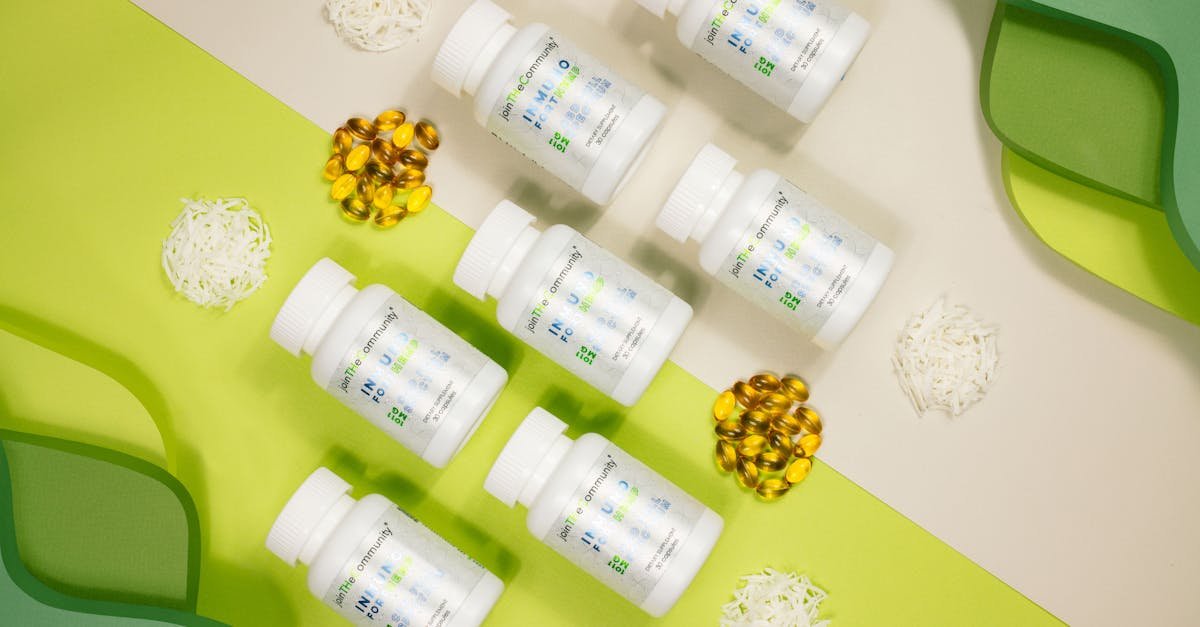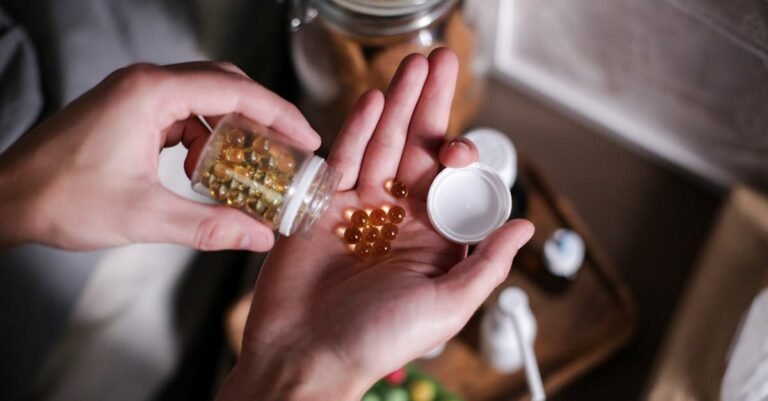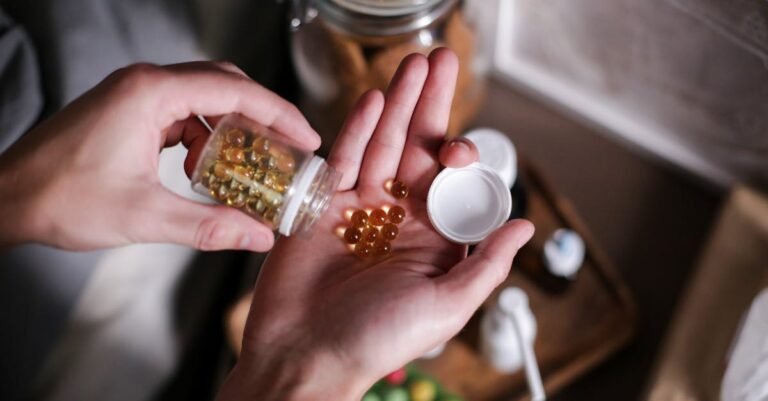Table of Content
- Top Elderberry Supplements for Immunity: Your Ultimate Guide
- What Exactly is Elderberry, Anyway?
- Why Consider Elderberry Supplements for Immune Support?
- Choosing the Best Elderberry Supplement: What to Look For
- Top Elderberry Supplement Considerations
- Potential Side Effects and Precautions
- Integrating Elderberry into Your Wellness Routine
- Conclusion: Boosting Your Defenses Naturally
- Frequently Asked Questions (FAQs)
- FAQ 1: Can I take elderberry supplements every day?
- FAQ 2: Are elderberry supplements safe for children?
- FAQ 3: Does elderberry interact with any medications?
- FAQ 4: What’s the difference between black elderberry (Sambucus nigra) and other types?
- FAQ 5: How long does it take for elderberry supplements to work?
Top Elderberry Supplements for Immunity: Your Ultimate Guide
Feeling that familiar tickle in your throat? Worried about navigating the next round of seasonal bugs? We’ve all been there, right? In the quest for a robust immune system, nature often provides some potent allies. One such champion gaining serious attention is the humble elderberry. You’ve probably seen elderberry syrups, gummies, and capsules lining the shelves, promising immune support. But what’s the real deal? Are they worth the hype? Let’s dive deep into the world of elderberry supplements and uncover how they might just become your go to for staying healthy.
What Exactly is Elderberry, Anyway?
Before we jump into supplements, let’s get acquainted with the star player. Elderberry isn’t some newfangled invention; it’s the dark purple fruit of the Sambucus tree, specifically the European elder (Sambucus nigra). Picture clusters of tiny, almost black berries hanging heavy on branches. These trees have been part of landscapes and traditional medicine cabinets for centuries across Europe, North America, and parts of Asia.
While the flowers are often used for teas and cordials (hello, St. Germain liqueur!), it’s the berries that pack the immune boosting punch we’re interested in today. However, a word of caution: raw, unripe elderberries, as well as the leaves, bark, and roots of the plant, contain compounds that can cause nausea, vomiting, and diarrhea if ingested. Cooking the berries thoroughly deactivates these problematic compounds, making them safe and unlocking their beneficial properties. This is why processed elderberry supplements are the preferred way to consume them for health benefits.
A Brief History of the Humble Elderberry
Elderberry’s reputation isn’t just a modern wellness trend. Its use dates back thousands of years. Seriously, we’re talking ancient history! Hippocrates, often called the “father of medicine,” reportedly referred to the elder tree as his “medicine chest” back around 400 BC. That’s some serious historical street cred! Traditional folk medicine across various cultures relied on elderberry for a whole host of ailments, from treating colds, flu, and sinus infections to soothing burns and skin conditions. It was valued for its perceived ability to purify the blood, act as a diuretic, and promote sweating to break fevers. Our ancestors clearly recognized something special in these little dark berries.
The Science Bit: How Does Elderberry Work Its Magic?
Okay, so tradition is great, but what does modern science say? Researchers have been digging into elderberry’s properties, and the findings are pretty exciting, suggesting several mechanisms behind its immune supporting effects.
Antioxidant Powerhouse
Think of antioxidants as your body’s personal cleanup crew. They neutralize harmful molecules called free radicals, which are unstable atoms that can damage cells, contributing to aging and various diseases. Free radicals are generated through normal metabolic processes but also increase due to factors like pollution, poor diet, and stress. Elderberries are bursting with potent antioxidants, particularly anthocyanins – the pigments that give them their deep purple black color. These anthocyanins are superstars when it comes to scavenging free radicals, helping to protect your cells from oxidative stress. Less oxidative stress often means a better functioning immune system.
Anti-inflammatory Actions
Inflammation is a natural immune response, crucial for fighting off infections and healing injuries. However, chronic inflammation can be detrimental to health. Those same anthocyanins found in elderberries also possess significant anti inflammatory properties. By helping to modulate the body’s inflammatory response, elderberry might contribute to overall immune balance and potentially alleviate symptoms associated with excessive inflammation, like those seen during a cold or flu infection (think sore throat, aches).
Antiviral Potential
This is where elderberry really shines in the context of immunity, especially concerning colds and flu. Studies suggest that compounds in elderberry may have direct antiviral effects. How? Some research indicates that elderberry extracts can inhibit the replication of certain viruses, including specific strains of the influenza virus. It’s thought to work partly by blocking viral proteins called hemagglutinin spikes, which viruses use to attach to and enter host cells. If the virus can’t get into your cells, it can’t multiply and make you sick. Pretty neat, huh? Other studies suggest it might also stimulate the production of cytokines, which are signaling proteins that help coordinate the immune response against pathogens.
Why Consider Elderberry Supplements for Immune Support?
With a better understanding of what elderberry is and how it might work, why should you actually consider adding a supplement to your routine? It really boils down to proactive and reactive immune care.
Cold and Flu Season Savior?
Let’s be honest, nobody enjoys being sidelined by a cold or the flu. The coughing, sneezing, aches, and fatigue can really knock you out. This is perhaps the most studied and well known benefit of elderberry. Several clinical studies, primarily focusing on Sambucus nigra extracts, have suggested that taking elderberry supplements at the first sign of cold or flu symptoms may help shorten the duration and reduce the severity of the illness. Some research even indicates potential preventative benefits, particularly for travelers who are often exposed to various germs in confined spaces like airplanes. While it’s not a magic bullet cure, potentially cutting down sick days by a day or two? That sounds pretty appealing!
Beyond the Sniffles: Other Potential Benefits
While the focus is often on colds and flu, the benefits might not stop there. Thanks to its high antioxidant and anti inflammatory content, elderberry is being explored for other potential health advantages. These include supporting cardiovascular health (by potentially improving cholesterol levels and blood vessel function), managing blood sugar, and promoting skin health. It’s important to note that research in these areas is still emerging and less robust than the immune support studies, but it highlights the broader potential of this powerful berry.
Choosing the Best Elderberry Supplement: What to Look For
Okay, you’re convinced elderberry might be worth a shot. But walk into any health store or browse online, and the options can feel overwhelming. Gummies, syrups, capsules, different brands, varying strengths… how do you choose the right one for you? Let’s break it down.
Form Matters: Gummies, Syrups, Capsules, Oh My!
The delivery method is often the first thing you’ll notice. There’s no single “best” form; it largely depends on personal preference and needs.
Gummies: Tasty & Convenient
Let’s face it, gummies are popular for a reason – they often taste great and feel more like a treat than medicine. This makes them an excellent choice for kids (check age recommendations!) and adults who dislike swallowing pills or the taste of syrups. The downside? Gummies often contain added sugars or sugar alcohols, so check the label if you’re monitoring your sugar intake. Dosage consistency can also sometimes be slightly less precise than capsules or liquids.
Syrups/Liquids: Fast Absorption
Syrups and liquid extracts are a classic form. They are generally thought to be absorbed more quickly by the body compared to solid forms. Many traditional preparations were syrups, often homemade. Commercial syrups offer convenience and standardized dosages. They can be taken directly or mixed into water or other beverages. The taste can vary – some are quite sweet and palatable, while others might have a stronger herbal flavor. Again, check for added sugars or artificial sweeteners if that’s a concern.
Capsules/Tablets: Precise Dosage
For those who prefer a no fuss, no taste option, capsules or tablets are ideal. They offer precise, pre measured doses, making it easy to track your intake. They’re also convenient for travel. Absorption might be slightly slower than liquids, but they deliver a concentrated dose effectively. Ensure the capsules are easy for you to swallow.
Ingredient Quality and Sourcing
Not all elderberries are created equal, and neither are the supplements made from them. Look for products that specify they use European black elderberry (Sambucus nigra), as this is the species most studied for immune benefits. Consider where the elderberries are sourced. Are they sustainably grown? Organic certification can be a plus, ensuring the berries were grown without synthetic pesticides or fertilizers, although it often comes at a higher price point. Also, check the “other ingredients” list. Avoid products with excessive fillers, artificial colors, flavors, or sweeteners if possible.
Standardization and Dosage
This is crucial but can be confusing. “Standardization” means the manufacturer ensures a consistent amount of a specific active compound, usually anthocyanins, in each batch. This provides more reliable potency compared to simply using a certain amount of raw berry powder. Look for labels indicating standardization to anthocyanins. Dosages vary widely between products and forms. Clinical studies often use specific dosages (e.g., equivalent to several grams of dried berries or a certain amount of standardized extract) taken multiple times a day, especially when treating active symptoms. For general immune support, dosages might be lower. It’s best to follow the product’s instructions or consult with a healthcare professional to determine the appropriate dose for your needs.
Third Party Testing: Why It’s Crucial
The supplement industry isn’t as tightly regulated as pharmaceuticals. This means the quality, purity, and potency listed on the label aren’t always guaranteed. That’s where third party testing comes in. Certifications from independent organizations like NSF International, USP (United States Pharmacopeia), or ConsumerLab.com indicate that the product has been tested to confirm it contains what the label says it contains, doesn’t have harmful levels of contaminants, and is manufactured according to quality standards. Seeing one of these seals provides an extra layer of confidence in the product’s quality.
Top Elderberry Supplement Considerations
While recommending specific brands can be tricky as formulations change, let’s focus on the types of high quality supplements you might look for based on different needs:
The High Potency Choice
If you’re looking for maximum impact, especially when feeling under the weather, seek out supplements with a high concentration of standardized Sambucus nigra extract. These might come in capsule or liquid form, clearly stating the amount of elderberry extract and potentially the percentage of anthocyanins per serving. These are often geared towards adults looking for robust support during acute illness.
The Family Friendly Gummy
For households with kids (or picky adults!), a well formulated gummy is often the winner. Look for gummies that use Sambucus nigra, have a reasonable dosage appropriate for different age groups (check the label!), and ideally use natural sweeteners and colors. Some brands offer sugar free options using xylitol or stevia.
The Organic Syrup Option
If purity and natural ingredients are your top priority, an organic elderberry syrup could be perfect. These often feature simple ingredient lists, sometimes just organic elderberry extract, water, and a natural sweetener like organic honey or agave. They offer the potential benefits of faster absorption in a cleaner formulation.
The Added Immune Boost Blend
Some supplements combine elderberry with other well known immune supporting nutrients like Vitamin C, Zinc, Echinacea, or Probiotics. These combination formulas aim to provide broader immune support. If you choose one of these, ensure the dosages of each ingredient are meaningful and consider whether you’re already getting enough of those nutrients from your diet or other supplements.
Potential Side Effects and Precautions
Generally, commercially prepared elderberry supplements made from cooked berries (Sambucus nigra) are considered safe for most people when taken at recommended doses for short periods. However, as mentioned earlier, consuming raw or unripe berries, leaves, or stems is a definite no no due to their potential toxicity.
Some individuals might experience mild digestive upset (like nausea or diarrhea) from supplements, though this is uncommon. The most significant caution relates to elderberry’s potential immune stimulating effects. People with autoimmune diseases (such as rheumatoid arthritis, lupus, or multiple sclerosis), where the immune system mistakenly attacks the body’s own tissues, should exercise caution and consult their doctor before taking elderberry, as it could potentially exacerbate their condition.
Additionally, due to limited research, pregnant or breastfeeding women should avoid elderberry supplements unless specifically advised otherwise by their healthcare provider. If you’re on any medications, especially immunosuppressants, it’s crucial to discuss potential interactions with your doctor before starting elderberry.
Integrating Elderberry into Your Wellness Routine
So, how do you fit elderberry into your life? It’s not meant to replace fundamental healthy habits. Think of it as an extra tool in your wellness toolkit, not the entire toolbox.
For seasonal support: Many people start taking elderberry supplements daily during the fall and winter months when colds and flu are more prevalent. A maintenance dose, as recommended on the product label, might help bolster your defenses.
At the first sign of symptoms: This is where elderberry often gets the most attention. If you feel that first sniffle, scratchy throat, or wave of fatigue, starting a higher dose (again, follow product guidelines or professional advice) for a few days might help lessen the blow.
Before travel or crowds: Heading on a plane or attending a large event? Some people take elderberry for a few days beforehand and during the period of increased exposure as a preventative measure.
Remember, consistency is often key with supplements. And always pair it with the non negotiables: adequate sleep, a balanced diet rich in fruits and vegetables, regular exercise, stress management, and good hygiene (wash those hands!). Elderberry works best as part of a holistic approach to health.
Conclusion: Boosting Your Defenses Naturally
Navigating the world of immune support can feel complex, but nature offers some compelling options. Elderberry, with its rich history and growing body of scientific support, stands out as a potent contender. Its antioxidant, anti inflammatory, and potential antiviral properties make it a popular choice, particularly for tackling seasonal sniffles. By understanding the different forms, focusing on quality markers like standardization and third party testing, and considering your individual needs, you can choose an elderberry supplement that might just give your immune system the helping hand it needs. While not a substitute for healthy living or medical care, incorporating a high quality elderberry supplement could be a valuable step in your proactive wellness journey, helping you stay resilient and feel your best, naturally.
Frequently Asked Questions (FAQs)
FAQ 1: Can I take elderberry supplements every day?
Many people take elderberry daily for seasonal immune support, particularly during colder months. Most studies have looked at short term use (around 5 14 days) for acute illness. Long term daily use hasn’t been extensively studied, but it’s generally considered safe for most healthy adults at recommended dosages. However, if you have an autoimmune condition or are taking other medications, it’s best to consult your doctor before starting long term use.
FAQ 2: Are elderberry supplements safe for children?
Specific elderberry products formulated for children are available, usually in gummy or syrup form with adjusted dosages. Cooked elderberry extract (Sambucus nigra) is generally considered safe for children over a certain age (often 1 or 2 years, check the product label). Always follow the product’s age and dosage recommendations carefully. Never give raw elderberry parts to children. Consult your pediatrician if you have any concerns or questions about giving elderberry supplements to your child.
FAQ 3: Does elderberry interact with any medications?
Yes, potentially. Because elderberry can stimulate the immune system, it might interfere with medications designed to suppress the immune system (immunosuppressants), such as those taken after an organ transplant or for autoimmune diseases. There’s also a theoretical risk it could interact with diuretics or laxatives due to its traditional use for these purposes. Always talk to your doctor or pharmacist before taking elderberry if you are on any prescription or over the counter medications.
FAQ 4: What’s the difference between black elderberry (Sambucus nigra) and other types?
Sambucus nigra, or European black elderberry, is the most common type used in supplements and the most studied for its health benefits, particularly immune support. Other species exist, like the American elder (Sambucus canadensis), which is also used traditionally but less researched for supplements. Some other elder species can be toxic. When choosing a supplement, look specifically for Sambucus nigra to ensure you’re getting the type backed by the most scientific evidence.
FAQ 5: How long does it take for elderberry supplements to work?
When taken for acute cold or flu symptoms, studies suggest benefits (like reduced duration or severity) might be noticeable within 24 48 hours of starting supplementation, especially if taken at the very first signs of illness. For general immune support taken preventatively, the effects aren’t usually “felt” directly; it’s more about potentially reducing the frequency or severity of illnesses over time with consistent use during periods of risk (like winter).










